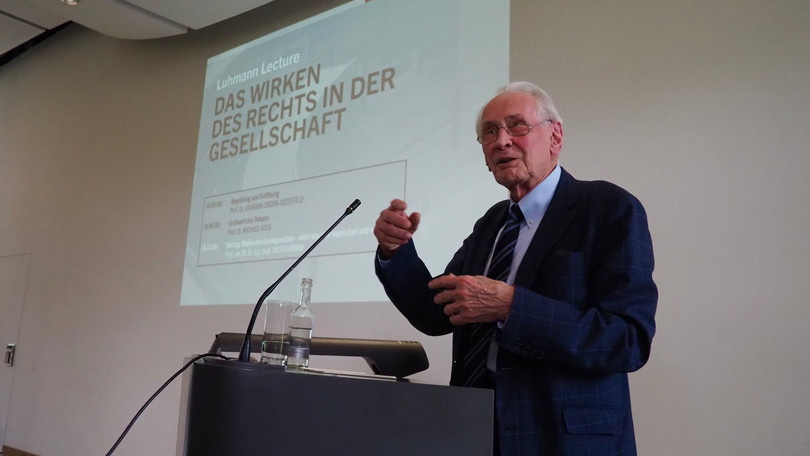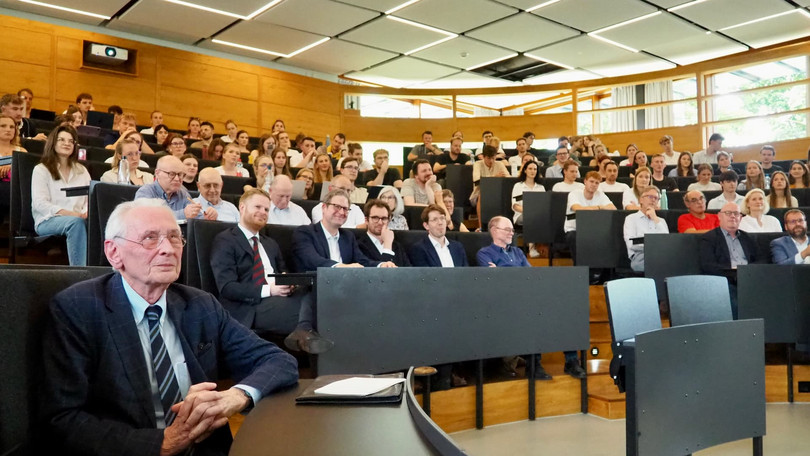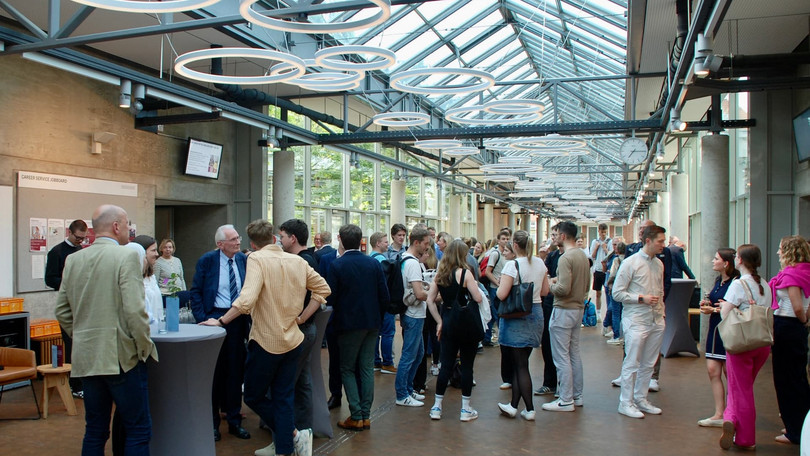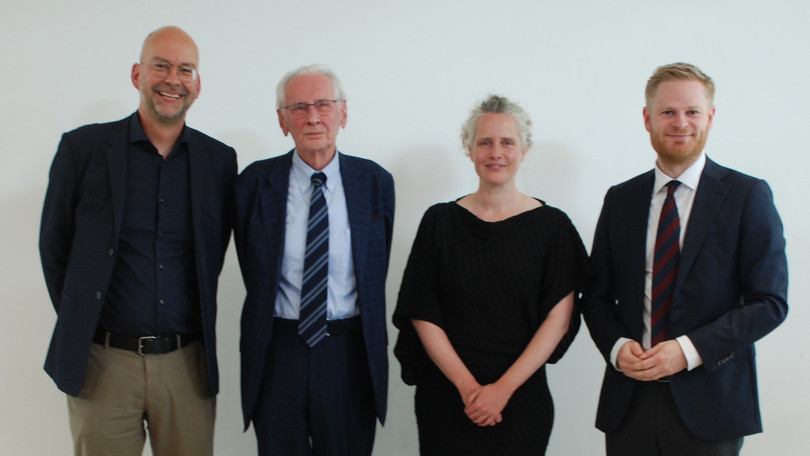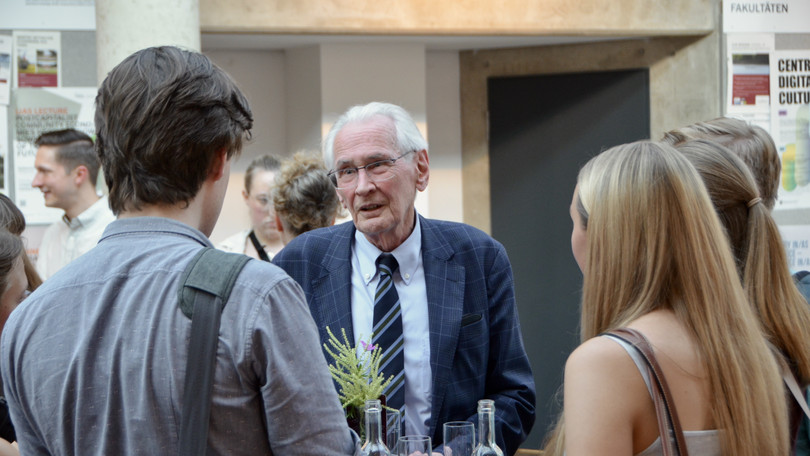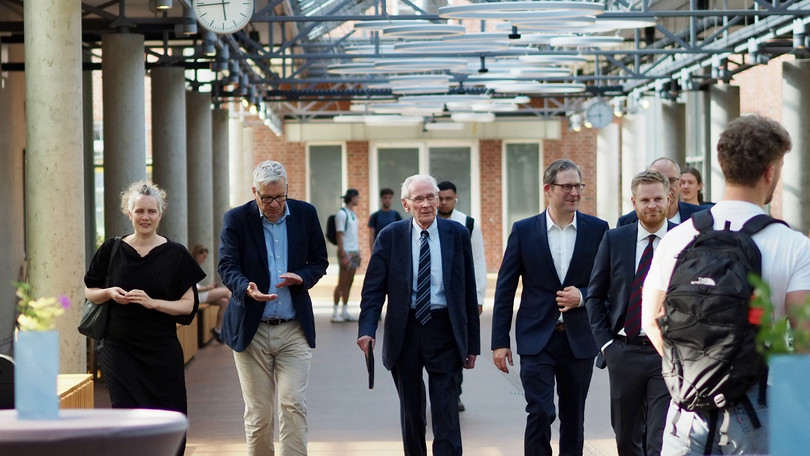"Ground of the Basic Law - or: what you can and cannot say"
Luhmann Lecture with Prof. em. Dr Dr h.c. mult. Dieter Grimm
2025-06-27 As part of the Luhmann Lecture on 17 June 2025, constitutional law expert and former Federal Constitutional Court judge Prof. Dieter Grimm gave a lecture on the topic of "Ground of the Basic Law - or: what one may and may not say". In his lecture, he focussed on a term that is frequently used in political and social debates yet rarely explained in depth: the "ground of the Basic Law".
What does it actually mean to stand on the "ground of the Basic Law" - or to leave it? And how can we determine whether a statement falls within this framework - or transgresses it?
To answer these questions, Prof. Grimm referred to the following considerations: Since the Basic Law is amendable, claims that are enforceable in a constitutional manner cannot, by definition, fall outside the "ground of the Basic Law" at all. Moreover, even claims that are incompatible with the Basic Law do not constitute violations of it, as the Basic Law is addressed to the state, not to private individuals. It guarantees these individuals their freedoms. Freedom of opinion, therefore, also covers statements that challenge the Basic Law and the order established by it. The instruments of defensive democracy, such as the banning of political parties, only intervene when such claims are to be put into practice.
Drawing on Niklas Luhmann's observation that modern societies depend on institutions for the generalisation of information, Prof. Grimm went on to argue that these very institutions are losing importance with the advent of the internet. However, their generalising function could not be replaced by platforms that control the flow of information. As a result, a divergence emerges between what is legally permissible to say and what is socially acceptable to say.
What is considered "sayable" shifts simultaneously in two directions: While a tendency towards liberalisation permits more diverse forms of expression, increasing social moralisation gives rise to new taboo zones. This divergence presents a challenge for society, law, and politics - in both analogue and digital realms - to develop viable mechanisms for constructive democratic discourse. A nuanced understanding of law, the public sphere, and political culture is indispensable in this regard.
The lecture concluded with a lively discussion among participants - addressing the scope of freedom of expression, the role of social media in public debate, and the boundaries of permissible speech in a democratically organised society.

